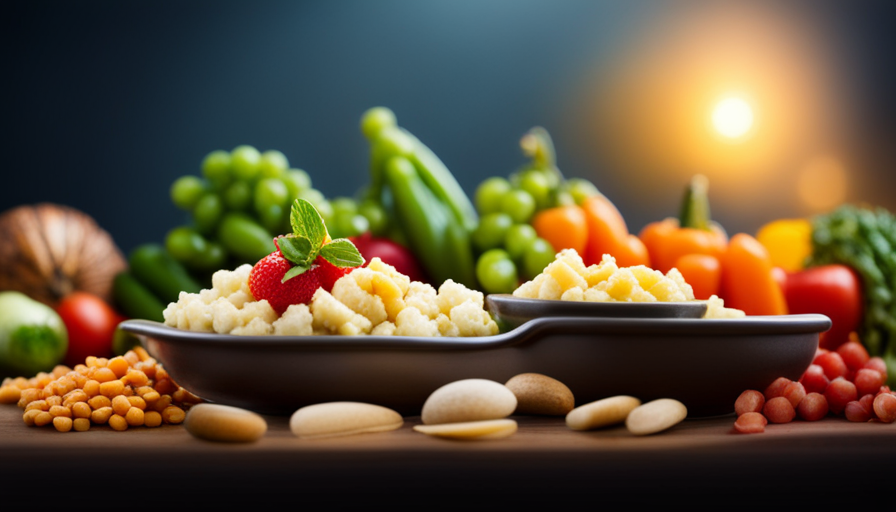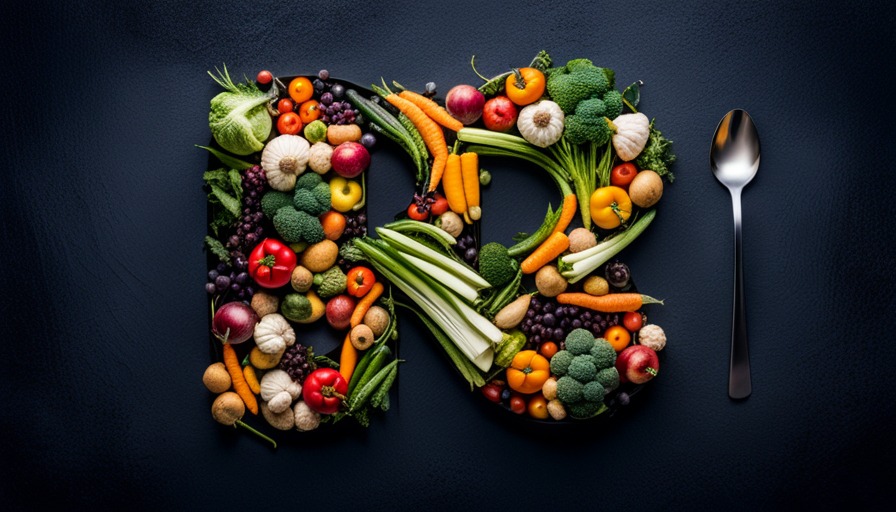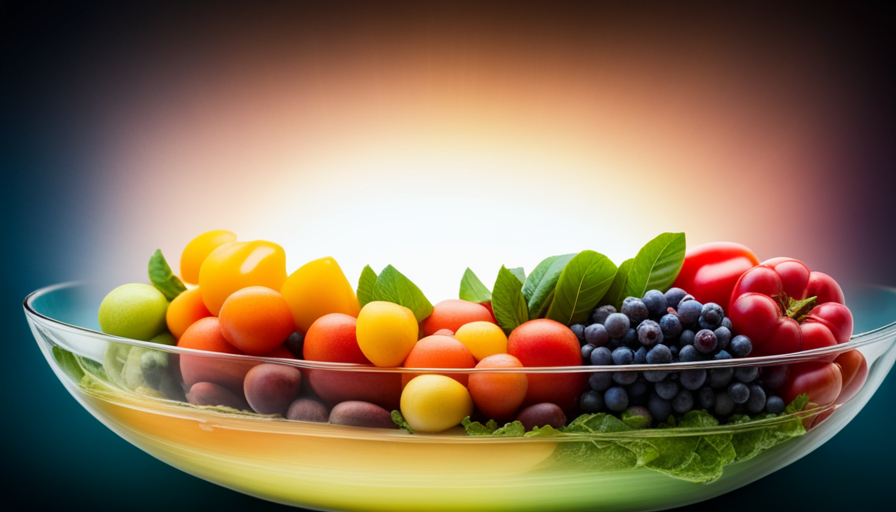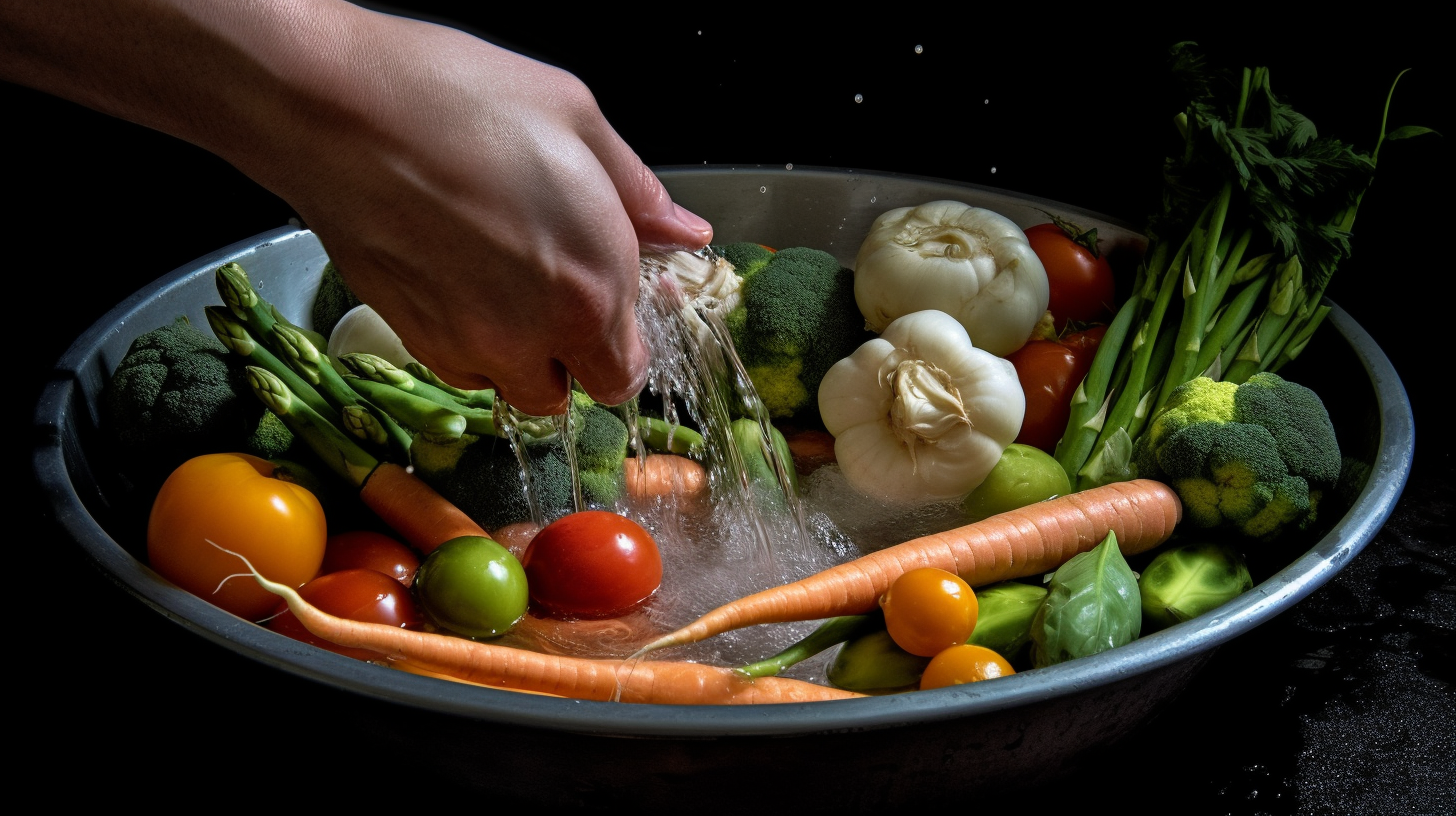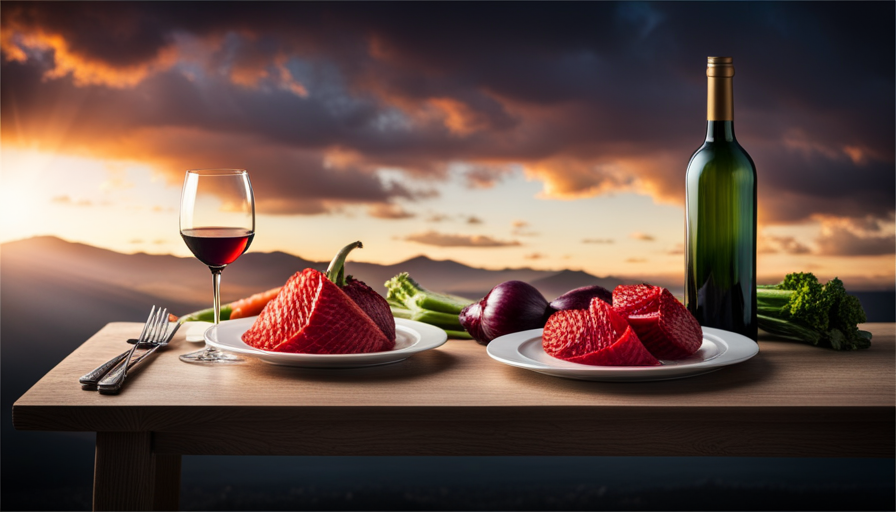Hello there! As an expert in raw vegan nutrition, I am dedicated to educating others on the pros and cons of following a raw vegan diet. With that in mind, I would like to take this opportunity to share some insights on the various advantages and disadvantages of embracing this dietary lifestyle.
Raw veganism is becoming increasingly popular among health-conscious individuals, but it’s important to understand exactly what you’re getting yourself into before making the switch.
Keep reading for an in-depth look at both the advantages and drawbacks associated with going 100% raw and vegan.
Nutrient Density
When it comes to the ethical sourcing of our food, raw veganism can provide a solution that many people have been searching for. By avoiding animal products and processed foods, one is able to enjoy an abundance of fresh fruits, veggies, nuts and seeds with a clear conscience knowing that their dietary choices are not contributing to environmental degradation or unethical farming practices.
For those who suffer from certain food intolerances, such as lactose intolerance or gluten sensitivity, this type of eating may be especially beneficial as they are more likely to find meals free of these irritants when following a plant-based diet.
The nutrient density of raw vegan diets has long been praised by nutritionists around the world. When relying on fresh produce alone, essential vitamins and minerals are easily obtained through consuming colorful salads and blended smoothies packed full with antioxidants. With so much variety available in nature’s bounty there is plenty of opportunity to create delicious recipes without ever feeling deprived or bored.
Transitioning away from cooked dishes also means that heat sensitive enzymes remain intact allowing for easier digestion and better absorption of nutrients into the body.
For those looking to shed some extra pounds without compromising on taste, making small changes over time could prove quite successful in helping achieve desired goals. The lack of calorie dense fried items typically found in traditional western diets may lead to gradual weight loss while still satisfying hunger cues thanks to large portions filled with wholesome ingredients like sprouted grains and crunchy root vegetables.
Going green never tasted so good!
Weight Loss
When it comes to raw vegan diets, many people are interested in the potential for weight loss. While this diet can help you lose weight, there is more to consider when looking at its health benefits.
Firstly, gut health is improved due to the high fiber content of a raw vegan diet – helping keep your digestive system running smoothly and efficiently. Meal planning also plays an important role here; having some structure in place with meal plans makes it easier to stick to the diet while still getting all of your essential nutrients.
Improved digestion isn’t just about what we eat though – our bodies need adequate hydration too! Drinking plenty of water each day helps flush out toxins and promote healthy elimination processes. Additionally, adding probiotic-rich fermented foods such as kimchi or sauerkraut into your meals can also enhance gut health even further.
Raw veganism has numerous advantages but being mindful of how these choices affect our body is key. Eating nutrient dense plants is great for overall wellbeing but remember that eating in moderation and staying active will always be beneficial for long term health outcomes.
Moving forward, understanding how lifestyle factors interact with food choices is vital for creating a balanced dietary plan which works best for you.
Improved Digestion
I’ve seen many people experience positive effects of a raw vegan diet on their digestion, such as improved regularity and fewer digestive issues.
However, it’s important to be aware of the potential negative effects, like the risk of nutrient deficiencies and the need to supplement with certain vitamins and minerals.
With the right approach, though, you can enjoy the benefits of improved digestion while avoiding any potential pitfalls.
Let’s discuss the positive and negative effects of a raw vegan diet on digestion together!
Positive Effects
Raw veganism is becoming increasingly popular, and for good reason. Eating a diet composed of raw plant-based proteins and ingredients can have positive effects on digestion.
As a raw vegan nutritionist, I often witness people making the switch to this lifestyle and seeing significant improvements in their digestive health almost immediately. For example, by consuming fewer processed foods, individuals naturally experience less bloating and discomfort after meals. Additionally, since many raw ingredients are high in fiber they aid in regularity which reduces constipation.
Plant based proteins also help to ensure that we get enough nutrition without having to turn to unhealthy alternatives like dairy or meat products. One of the most enjoyable benefits of eating this way is feeling energized throughout the day due to improved nutrient absorption from all the fresh veggies and fruits!
Overall, it’s an excellent option for anyone looking to improve their digestive health without sacrificing taste.
Negative Effects
Despite the many positive effects of raw veganism on digestion, there can be some negative effects as well.
For example, when making the switch to this lifestyle, individuals may experience an altered taste in their food due to changes in eating habits.
Additionally, it is typical for cravings for more processed foods to be delayed until later down the line, which can lead to overeating and feeling bloated afterwards.
Though these issues are often temporary during the transition period, they should still be taken seriously so that one does not fall back into old unhealthy habits.
As a raw vegan nutritionist I always recommend my clients gradually ease into new diets and listen closely to how their body reacts at each step of the way.
By doing this we can ensure that our bodies get all the nutrients needed without any unpleasant side effects.
Eating a balanced diet full of plant based proteins and fresh produce is key!
Increased Energy
As a nutritionist, I often hear from my clients that they feel increased energy while on a raw vegan diet.
The abundance of vitamins and minerals in fruits, vegetables, whole grains, nuts and seeds provide an incredible amount of natural fuel for the body to use as energy. When balanced properly with adequate amounts of healthy fats and proteins, it provides all the nutrients necessary to help you be your most energized self.
On top of providing more energy than other diets, eating raw vegan also satisfies cravings without compromising vegan ethics. By choosing plant based foods that are uncooked or minimally cooked such as salads and smoothies, you can eat until full without feeling weighed down afterwards like after eating a large meal. This helps keep people satisfied for longer periods of time throughout the day which gives them greater access to their natural energy reserves.
Raw vegan has additionally been linked to improved mental clarity due to its high nutrient density and low calorie count per serving size. Eating this way will give you fewer calories but more nutrients allowing your brain to stay focused and alert instead of foggy or lethargic from over-eating processed food laden with sugar and unhealthy oils.
With clearer thinking comes more efficient decision making which leads to better overall performance no matter what activity you’re engaging in – work related activities, physical exercise or just living life!
Moving forward into clearer skin…
Clearer Skin
Going raw vegan can be a great way to get clearer skin! There are many benefits like increased nutrition, improved gut health, and balanced hormones.
However, there are some disadvantages to a raw vegan diet, such as the lack of variety and potential nutrient deficiencies.
I suggest talking to a nutritionist before making any drastic changes to your diet to ensure you’re getting the nutrition you need.
Benefits
When it comes to raw veganism and clearer skin, there are definitely some major benefits.
The low inflammation associated with a raw vegan lifestyle means that the body is able to naturally combat blemishes and other skin issues without harsh chemicals or medication.
Plus, flexible dieting allows you to tailor your nutrition needs in order to get all the vitamins and minerals required for healthy glowing skin.
Not only will this help reduce breakouts but also give you an even complexion over time.
All of these nourishing properties can be found through eating whole food plant-based meals like salads, smoothies, and vegetables!
As you can see, following a raw vegan lifestyle has many advantages when it comes to achieving clear skin – now go on out and get that glow!
Disadvantages
Although there are some great advantages to following a raw vegan diet for clearer skin, it’s important to recognize the potential disadvantages as well.
One of the main issues with this type of lifestyle is that your menu options become limited. This can be frustrating if you don’t enjoy eating raw food or find yourself too busy to prepare meals every day.
Additionally, preparing and consuming these meals often takes more time than simply grabbing something from a restaurant on-the-go.
Ultimately, while the benefits can certainly outweigh the drawbacks, it’s important to consider all aspects before diving in head first!
Reduced Risk Of Chronic Diseases
Eating a raw vegan diet has many advantages for long-term health, including reduced risk of chronic diseases. One example is diabetes; when people switch to a plant-based diet, their blood sugar levels can drop dramatically and quickly.
Studies have shown that those who follow this type of dietary plan are far less likely to develop type 2 diabetes compared to those who eat animal products or processed foods.
In addition to controlling blood sugar levels, eating a raw vegan diet also helps with mental clarity and overall well-being. Many individuals report feeling more energized during the day and they often experience improved moods due to the vitamins, minerals and antioxidants found in unprocessed fruits and vegetables.
This could be attributed to the fact that these whole foods contain essential nutrients our bodies need to stay healthy and functioning efficiently.
Furthermore, research suggests that an influx of alkaline rich foods into one’s diet can help balance out any acidity brought on by stress or environmental factors – leading to better physical performance over time.
All of which contributes greatly to reducing the risk of developing chronic illnesses such as heart disease, stroke and cancer down the line.
With all these benefits in mind, it’s easy to see why so many people choose a raw vegan lifestyle! Moving forward, cost effectiveness must now be taken into consideration…
Cost Effectiveness
I’m a big believer in the cost effectiveness of a raw vegan diet. For starters, there are many advantages to eating this way, including improved digestion, increased energy, and a reduced risk of chronic diseases.
Additionally, eating raw vegan can save you money in the long run since you won’t be buying processed, pre-made foods. On the other hand, some ingredients can be expensive, like organic fruits and vegetables, so it’s important to find ways to save money in your grocery budget.
Advantages
Raw vegan diets can be highly cost effective! As a raw vegan nutritionist, I often see people shocked at how much money they save while still meeting their nutritional needs.
By cutting out animal products and relying mostly on fresh fruits and vegetables, you’ll find yourself with more left over cash in your pocket come the end of each month. Not to mention that you’re being kinder to animals by making ethical decisions about what’s going into your body.
Plus, if taste preference is an issue for you when it comes to plant-based alternatives, rest assured that many raw vegan recipes are designed to make up for any dietary adjustments with plenty of delicious flavors. Ultimately, there’s no denying the fact that raw vegans get major bang for their buck!
Cost Savings
I’m sure you’re wondering what kind of cost savings a raw vegan lifestyle can bring. Well, let me tell you!
When it comes to the time commitment, there’s less preparation and cleaning involved compared to other diets. Plus, the food itself tends to be much cheaper because most ingredients are plant-based. So if you want to make a few simple lifestyle changes that will save money in your pocket, then this is definitely something worth considering.
It doesn’t stop there either – with fewer trips to the grocery store, you’ll also find yourself spending less on gas or transportation fares. And since many raw vegans choose not to eat out as often, they end up saving even more money in the long run.
The great part about all these small costs savings is that it adds up over time without having an impact on your nutritional needs!
So whether you’re looking for ways to budget better or just trying out new recipes from scratch at home, I promise that going raw vegan won’t break the bank any day soon!
Low Environmental Impact
When it comes to cost effectiveness, raw veganism is an affordable way of eating that doesn’t require expensive specialty ingredients. However, the low environmental impact of a raw vegan diet also makes it stand out from other plant-based diets. Eating minimally processed foods and reducing plastic can have a big effect on one’s carbon footprint. Plus, when you buy locally sourced and organic produce, you are supporting ethical farming practices which helps sustain our planet for future generations.
Another benefit of following a raw vegan lifestyle is its low environmental impact. With no animal products in your diet, there’s less methane released into the atmosphere from factory farms, as well as fewer resources used up like land and water. Your grocery bill will likely be more economical too since most fresh fruits and vegetables don’t come with a hefty price tag like meat or dairy does.
Additionally, buying seasonal produce directly from farmers markets supports local businesses while also cutting down on shipping costs and packaging waste associated with food delivery services.
Raw vegans may find that their food choices tend to be cheaper than those who follow traditional vegetarianism or omnivorous diets due to limited animal product consumption as well as reduced reliance on convenience foods such as boxed meals and microwavable snacks. While this style of eating has many advantages, potential nutrient deficiencies are something to consider before making any dramatic dietary changes.
Potential Nutrient Deficiencies
Choosing a raw vegan lifestyle can be beneficial for health, but it poses some potential nutrient deficiencies. To minimize this risk and get the essential nutrients you need, alternative sources of vitamins and minerals should be included in your diet. Supplementation may also be necessary if there is difficulty obtaining or absorbing specific nutrients from food.
Here are three key points to consider when following a raw vegan diet:
-
Make sure to include adequate amounts of fruits and vegetables rich in Vitamin A, C, E, K and B12 such as kale, spinach, carrots, oranges and apricots.
-
Add seeds like sunflower seeds or chia that contain healthy fats and Omega-3 fatty acids which are important for maintaining cell membranes and hormone production.
-
Consider adding sprouts (such as mung beans) to boost both macronutrient intake as well as micronutrients because they have higher absorption rates than regular cooked foods.
Raw vegan diets often lack certain macro-and micronutrients due to their limited variety of foods so it’s important to diversify with plant based sources where possible in order to meet dietary requirements without compromising the health benefits associated with eating mostly uncooked meals.
With careful planning and consideration of alternative sources of vitamins and minerals along with proper nutrient absorption techniques, one can enjoy all the benefits of a raw vegan diet while avoiding nutritional deficiencies. Armed with knowledge about nutrition needs on top of basic cooking skills required for a balanced meal plan that fits within this specialty way of eating – transitioning into a healthier new lifestyle becomes much easier!
Cooking Skills Required
Adopting a raw vegan lifestyle requires some cooking skills, and sometimes a good amount of time investment to make sure all meals are balanced. Learning the basics of food preparation is essential in order for you to be able to whip up delicious and nutritious meals with ease. Let’s take a look at what it takes to get started on your journey as a raw vegan cook.
| Skill | Level of Difficulty | Time Investment |
|---|---|---|
| Prepping & Cutting Veggies/Fruits | Easy | Low |
| Sprouting Grains & Legumes | Medium | Moderate |
| Making Nut Milks & Creams | Hard | High |
Prepping and cutting vegetables and fruits can provide an excellent foundation for any recipe. This skill only requires basic knowledge of vegetable shapes, sizes, colors, textures, etc., as well as familiarity with kitchen knives or other tools that may come in handy when prepping ingredients. It also has low time investment if done right – no need to spend hours chopping! On the other hand, sprouting grains and legumes takes more effort because it involves soaking them overnight before rinsing and draining multiple times throughout the day until they’re ready to eat or use in recipes. Lastly, making nut milks and creams tend to require more experience since there are several steps involved such as blending nuts with water, filtering out pulp and flavoring accordingly. This process also calls for greater time investment compared to prepping veggies and fruits – but don’t worry; once you learn how it works you’ll have plenty enough time left over for socializing!
Social Interaction Challenges
One of the main disadvantages of a raw vegan lifestyle is that it can lead to social isolation. Eating out with family and friends becomes difficult as many restaurants don’t offer enough options for raw vegans, so dining together isn’t always possible. This lack of social interaction when eating can be isolating and make it hard to stay connected with loved ones or even make new connections.
Also, food cravings can become an issue on a raw vegan diet. When you’re surrounded by people eating delicious foods that are off limits, it can be difficult not to join in on their indulgences. And if you do give into your temptations, guilt may follow which could further exacerbate feelings of disconnection from others.
The transition to a raw vegan diet takes dedication and commitment, which can prove challenging over time. As most diets require some degree of sacrifice, getting used to this way of life might take more effort than other dietary changes one could make – making it harder to stick with long-term.
Difficult To Follow Long-Term
The theory that raw veganism is too difficult to follow long-term has some truth to it. While this lifestyle can be incredibly beneficial, it does require a significant commitment of time and effort for meal planning. For those with busy schedules or limited access to ingredients, the challenge of maintaining a strictly plant-based diet may seem insurmountable.
However, there are ways to make raw veganism more doable in the long run. Many recipes are quick and easy to prepare once you have gathered your ingredients – plus leftovers from one day can often be enjoyed on another day with minimal fuss.
Additionally, if you choose nutrient dense foods such as nuts, seeds, fruits and vegetables you’ll find yourself feeling full for longer periods of time so you won’t need to worry about hunger cravings throughout the day.
Raw veganism does offer various health benefits but it’s important not to underestimate the amount of dedication needed when following this lifestyle choice. Meal prepping ahead of time will ensure meals are ready without having to spend extra time in the kitchen each day – while stocking up on fresh produce at regular intervals helps maintain variety and flavor within your dishes.
Lack Of Variety
When it comes to following a raw vegan diet, one of the biggest drawbacks is lack of variety. It can be quite difficult to maintain interest in eating this way for long periods of time due to limited food choices.
This requires a considerable amount of planning and preparation on behalf of the individual to ensure that their meals remain interesting and varied over time. Taking time to research recipes, shop for ingredients, and prepare meals regularly takes up a lot of energy and may not always be feasible depending on work or other commitments you may have outside your home.
Eating out at restaurants can also present challenges as many places do not offer any dishes suitable for those who follow a raw vegan lifestyle. This means that individuals must either bring their own meal along or they might end up being stuck with unsatisfying meal experience which can lead to feelings of dissatisfaction.
Unsatisfying Meal Experience
I understand how trying to follow a raw vegan diet can be difficult, especially when it comes to meals. Lack of variety can be an issue, with not enough food options to keep meals interesting.
Blandness can also be an issue with raw vegan meals, as cooked foods often have more flavor. Nutrient intake is also important, as some essential vitamins and minerals can be harder to get in a raw vegan diet.
This can lead to an unsatisfying meal experience that can be easily avoided with proper planning and thoughtful meals. By taking the time to research and plan meals, you can ensure that your raw vegan diet is full of variety, flavor, and important nutrients.
Lack Of Variety
It can be so frustrating to try and find variety in a raw vegan diet! As someone who has been eating this way for many years, I understand the struggle.
Meal planning takes time and effort to make sure you get all the right vitamins and minerals through supplementation or food sources. But it’s worth it: if you don’t have enough variety in your meals, you may end up getting bored with them quickly.
That means that even though there is plenty of delicious plant-based food out there to enjoy, some people might not take advantage of its benefits because they just don’t know how to diversify their diets when following a raw vegan lifestyle.
Fortunately, there are lots of online resources available to help meal planners get creative with recipes and ingredients so that every day doesn’t feel like the same monotonous routine.
By taking the time to research new ideas for snacks and entrees, raw vegans can find ways to keep things interesting while still reaping all the health benefits associated with this type of diet.
With careful meal planning, anyone can enjoy an enjoyable — yet healthy — culinary experience full of flavor and nutrients!
Blandness
It can be disheartening when your meal experience feels unsatisfying because of bland flavors. But that doesn’t mean you have to give up on raw veganism!
There are plenty of unconventional flavors and culinary creativity available for those who want to get creative with their dishes. With a little research, it’s possible to find recipes and ingredients that will liven up any meal while still providing essential nutrients.
Plus, exploring new flavor combinations is an exciting way to keep meals interesting and enjoyable. All you need is a bit of time, effort, and dedication to develop menus full of variety and rich in nutrition.
Low Nutrient Intake
When it comes to raw veganism, one of the biggest worries is inadequate nutrient intake. Even if you manage to make a meal that tastes great and looks amazing, there’s still no guarantee that you’re getting enough protein or minerals for your body to function properly. This can be especially concerning if you’re eating only raw foods since many cooking methods help increase the availability of nutrients in food.
As a result, it’s important to pay attention not just to flavor combinations but also to nutrition when crafting meals as part of a raw vegan diet.
To ensure adequate nutrient intake, focus on including ingredients with high amounts of plant-based proteins like legumes and nuts, and plenty of essential vitamins and minerals found in fruits, veggies, and whole grains. Additionally, look into supplements such as spirulina powder which are rich in iron and magnesium.
These steps will go a long way toward making sure you have all the right components for a balanced diet full of delicious flavors that won’t leave you feeling unsatisfied or deprived!
Inconvenience Of Meal Preparation
As someone who’s been eating raw vegan for years, I can tell you that it comes with its own unique set of challenges. Despite all the benefits of a plant-based diet, there are still some inconveniences to consider when meal prepping and planning.
For one thing, it can be incredibly time consuming – not only does each individual ingredient have to be carefully sourced or prepared from scratch but coming up with creative meal ideas takes effort too.
Meal planning itself is also an art form in many ways; without proper thought and attention put into making sure meals are filling enough, tasty enough and balanced nutritionally speaking, your experience as a raw vegan eater could quickly become unsatisfying.
The key here is finding the right balance between convenience and nutrition; while fast food may be convenient in terms of preparation, overindulging in these types of meals will more than likely lead to health issues down the road.
Learning how to properly plan out meals ahead of time while taking taste buds into consideration is something every aspiring raw vegan should strive for if they want to get the most out of their lifestyle choice.
Frequently Asked Questions
What Is A Raw Vegan Diet?
A raw vegan diet is a plant-based eating plan that avoids all animal products, as well as food cooked above 115°F.
This type of diet emphasizes whole foods like fruits, vegetables, nuts and seeds, sprouted grains, legumes, seaweed and certain fermented foods.
Plant-based proteins such as beans and lentils are staples in this low fat way of eating.
At first it might seem limiting but with time you’ll find the variety satisfying!
How Long Should I Follow A Raw Vegan Diet?
It’s hard to put a timeline on your raw vegan journey. The length of time you choose to follow this diet will depend on your individual nutrition needs and how well it works for you over the long term.
As a raw vegan nutritionist, I recommend starting slow – try it out one meal at a time or even just one day per week. Be mindful of eating out as restaurants may not always offer options that fit into your lifestyle, but with some creativity you can find solutions!
You should also be aware of any physical activity changes that could come along with switching diets. All in all, experimenting with a raw vegan diet is a great way to expand your nutritional horizons!
Are There Any Side Effects To A Raw Vegan Diet?
When it comes to raw vegan diets, many people wonder if there are any side effects.
While the diet can be incredibly beneficial for your health in many ways, like improved digestion and better sleep quality, it’s important to consider some potential drawbacks when following a raw vegan lifestyle.
Eating out may present challenges because cooked food is often required; likewise cooking techniques such as baking, steaming or stir-frying can be difficult to do without heated ingredients.
Additionally, since most of the vitamins and minerals necessary for optimal health come from animal products like meat and dairy, those on a strict raw vegan diet may need to supplement with B12 and other nutrients not found in plant-based foods.
What Foods Should I Avoid On A Raw Vegan Diet?
When following a raw vegan diet, there are certain foods that you should avoid in order to keep your body healthy and balanced.
To ensure your nutrient intake is optimal for a raw vegan lifestyle, it’s important to understand which types of food preparation methods can help provide the most nutrients during digestion.
Foods such as processed grains, cooked legumes, pasteurized dairy products and anything with added sugar or artificial sweeteners should be avoided.
Additionally, any type of animal product—including meats, fish and eggs—should also be excluded from your diet plan.
With careful planning and proper food preparation techniques, you can successfully maintain a nutritious and delicious raw vegan diet.
Is A Raw Vegan Diet Safe For Children And Pregnant Women?
Yes, a raw vegan diet is absolutely safe for children and pregnant women. The key to any healthy diet is balance; however, the right cooking methods can ensure that those who are following a raw vegan lifestyle get all of their necessary nutrients without having to worry about weight gain.
With careful meal planning and an awareness of what foods should be avoided on a raw vegan diet, it’s possible to create well-rounded meals that provide plenty of vitamins and minerals while avoiding processed ingredients.
All in all, if done correctly, a raw vegan diet can offer many benefits during pregnancy or childhood.
Are Raw Vegan Benefits and Disadvantages Similar to a Raw Food Diet for Pets?
Many pet owners wonder if the raw vegan benefits and disadvantages are similar to a raw food diet for pets. While raw food diets for pets may offer some benefits, such as improved digestion and healthier skin/coat, they also have potential disadvantages, including the risk of bacterial contamination and nutritional imbalances.
Conclusion
In conclusion, raw veganism offers a variety of potential benefits and risks to consider when making dietary choices. By understanding the pros and cons of this type of diet, individuals can make an informed decision about whether or not it is right for them.
As a nutritionist committed to helping my clients achieve their health goals in a safe and sustainable way, I recommend consulting with a qualified healthcare professional before embarking on any radical dietary changes like going raw vegan.
With the proper guidance, anyone interested in trying out this lifestyle has the opportunity to reap its rewards while avoiding any pitfalls that could potentially arise.

